Does your child complaint of headaches, blurry vision, squinting, and trouble to see the board at school? If you are thinking your kids may need glasses or already wearing eyeglasses, we invite you to come for a first consultation eye exam and explore the options and treatments available.
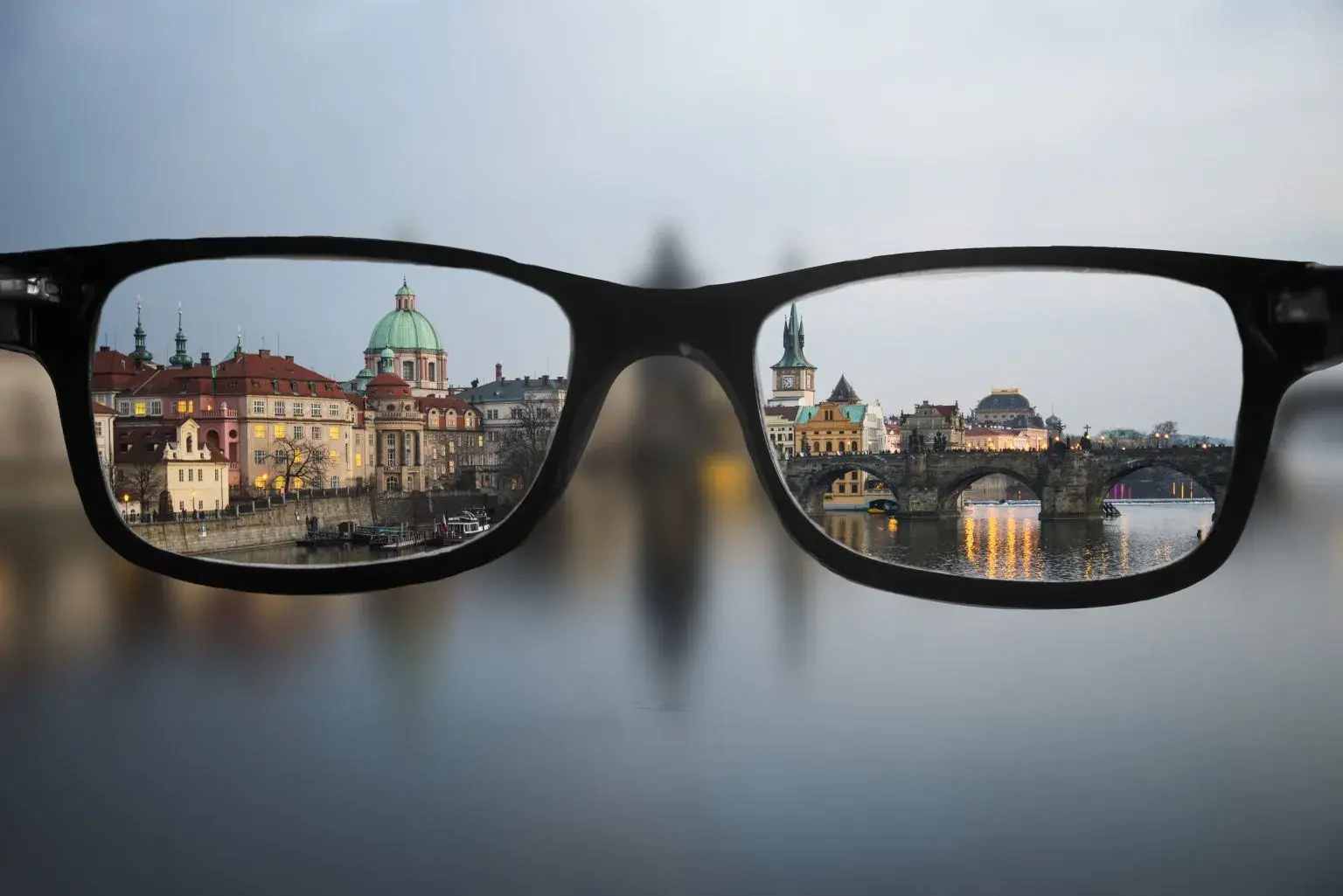
You are not alone, currently 1 out of 3 children are affected with nearsightedness in the United States. In Asian countries, the use of glasses in children is believed to be 80 to 97%. At Mi Vision Eye Care, our San Antonio myopia specialists have the commitment to bring latest technology and treatments options for your child to halt this epidemic and educate you, the parent, about your options and best decisions to reduce your child’s Myopia.
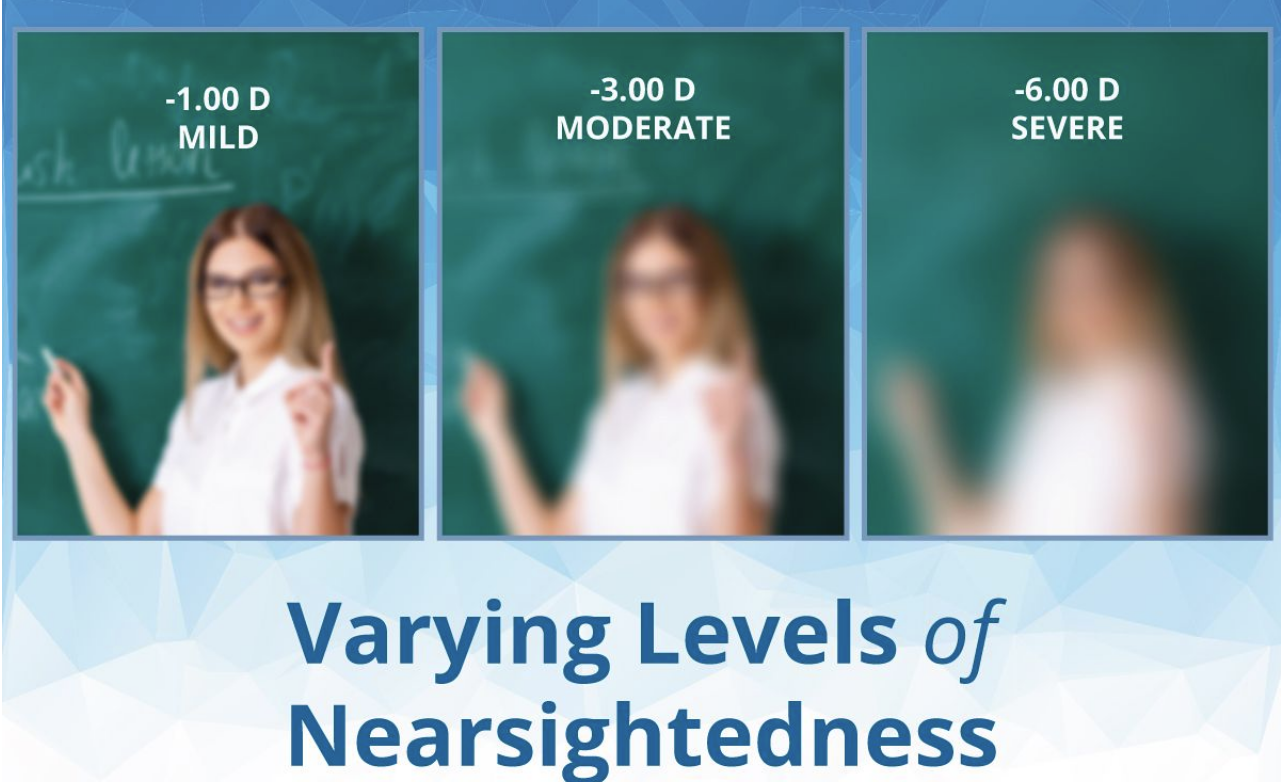
Myopia, or nearsightedness, is a common eye condition that makes it difficult to see at a distance. The more myopia, the blurrier you see at distance and the thicker your glasses become. It’s considered a chronic progressive disease that later in life is associated with conditions such glaucoma, cataracts, retinal detachment and macular degeneration.
Children who have untreated myopia may hold books close to their face, sit too close to the TV, or frequently squint in the classroom causing serious problems for school performance.
Myopia is caused by eye shape. When an eye is perfectly round, light reflects directly onto the retina for clear vision. However, when the eye is longer or has a mismatched corneal curvature, the light focuses in front of the retina and vision becomes blurry.
The golden question we hear in our eye doctor’s office is “what caused my child’s myopia?” Currently, research suggests one of the reasons for the increase in myopia is linked to change in lifestyle like spending more time indoors and limited time outdoors without exposure to the sun. Of course, genetics and other factors play a role, as well.
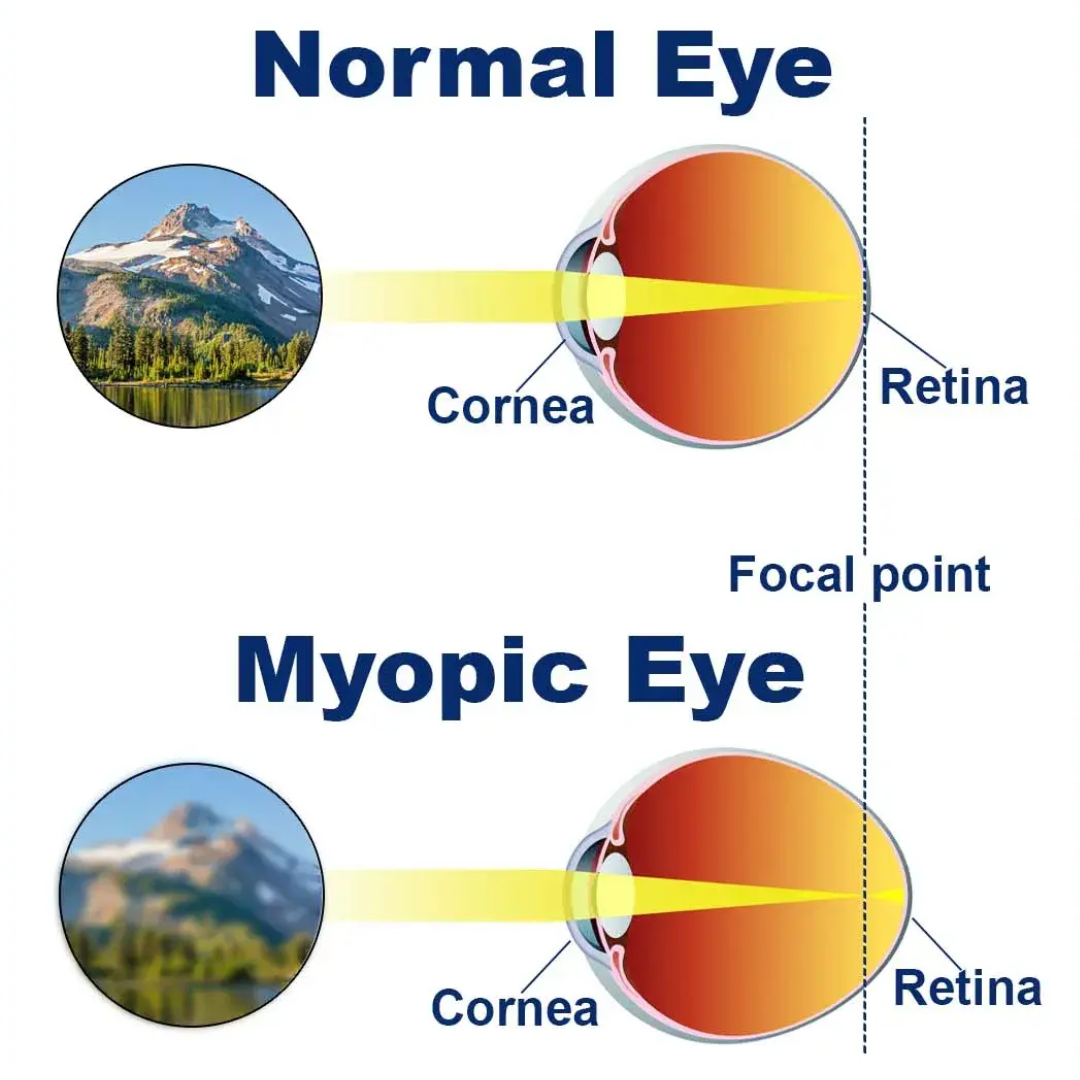
Many children have myopia that worsens as they grow. With myopia management, that doesn’t have to happen. At Mi Vision, we will explain your options, primarily if you come to our San Antonio office several times and we see a trend of continuous increased prescription.
Myopia management doesn’t only correct the nearsightedness of your child, but also reduces it over time according to several studies by using different treatment methods.
Dr. Cuba and our San Antonio myopia management team will discuss the following options for Myopia management according to your child’s lifestyle, current age, and prescription.
Orthokeratology, or ortho-k, are gas-permeable contact lenses that reshape your child’s cornea. Your child will wears ortho-k lenses overnight, which creates a temporary improvement, allowing them to see without glasses during daytime. Consistent ortho-k use can reduce eye elongation and may thus control myopia progression in the long term. At Mi Vision, we use Abiliti, the first FDA contact lens to treat myopia.
Abiliti™ Overnight Therapeutic Lenses are the first overnight contacts approved by the US FDA for myopia management, correcting myopia up to 6.00D and astigmatism of up to 1.50D. Acuve Abiliti™ family of Johnson & Johnson has been in myopia research for the last 15 years around the world.
The FDA recently cleared the first soft contact lens for myopia management, MiSight 1. These lenses correct your child’s refractive error while reducing eye elongation using a patented lens technology. This is a great option for those starting at an early age if a parent agrees to let their child wear contact lenses in their younger years.
Misight 1 Child-friendly daily disposable contact lenses are proven to slow the progression of nearsightedness in children aged 8-12 at the initiation of treatment and are the first dailies approved by the FDA in the United States.
New, state-of-the art product lenses have been introduced to the market as of late for managing myopia such progressives, dual powers and sometimes blended bifocals since we understand contacts sometimes may have side effects and do not work for everyone. Glasses are a good option for the management of myopia, but research has yet to prove this is a strong viable option for myopia management. Currently, there are no FDA approved glasses, but many are expected to become approved in the future. The current options in the market are: MiYoSmart, from Hoya, Stellest, from Essilor, and SightGlass Visions and other conventional progressive and bifocal lenses. We will be glad to explain more of this option in detail and help choose the right frame for your child’s needs.
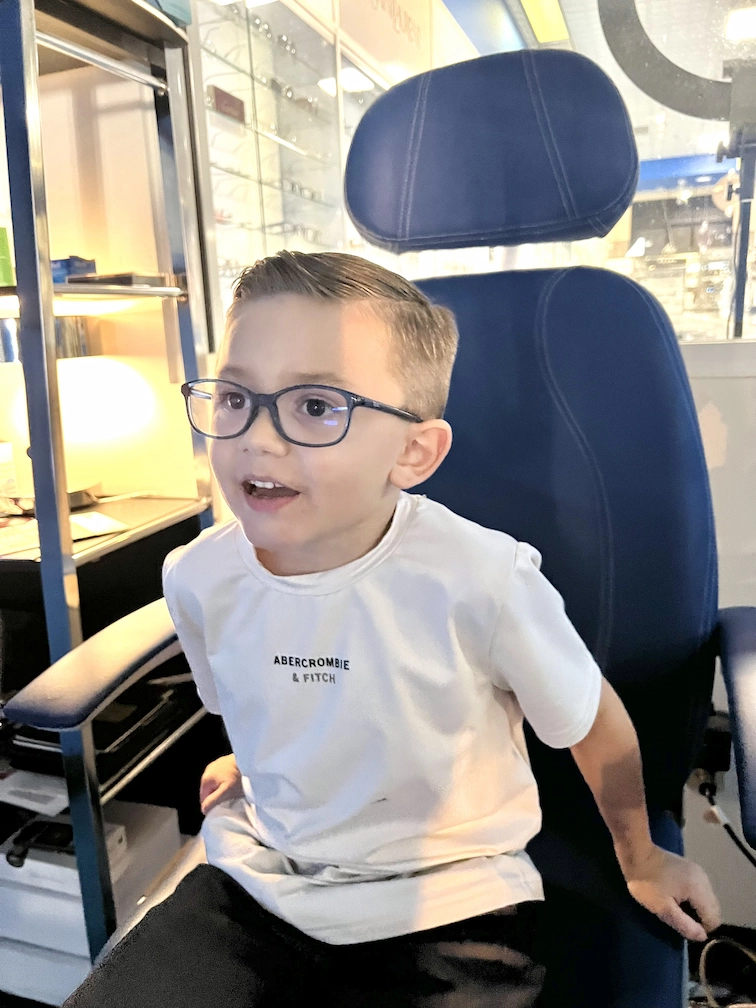
Low doses of atropine eye drops can potentially reduce focusing fatigue (and therefore, myopia) by relaxing the eye’s focusing mechanism. This is the last option due to comfort and side effects, but nevertheless is one of the strongest options for myopia reduction and cannot be disregarded. Currently there are no Atropine drops approved by the FDA yet, compared to other countries where it is common practice.
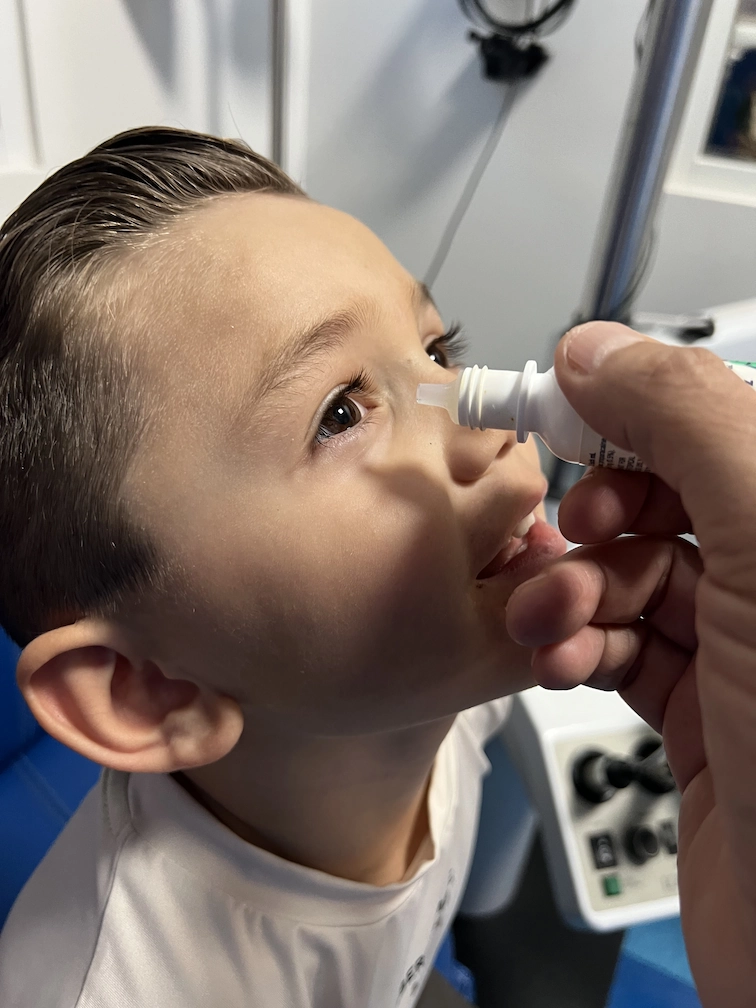
We are happy to discuss your child’s personalized needs during your next appointment with our myopia specialists. Parents and patients’ involvement is crucial to increase overall compliance with myopia.
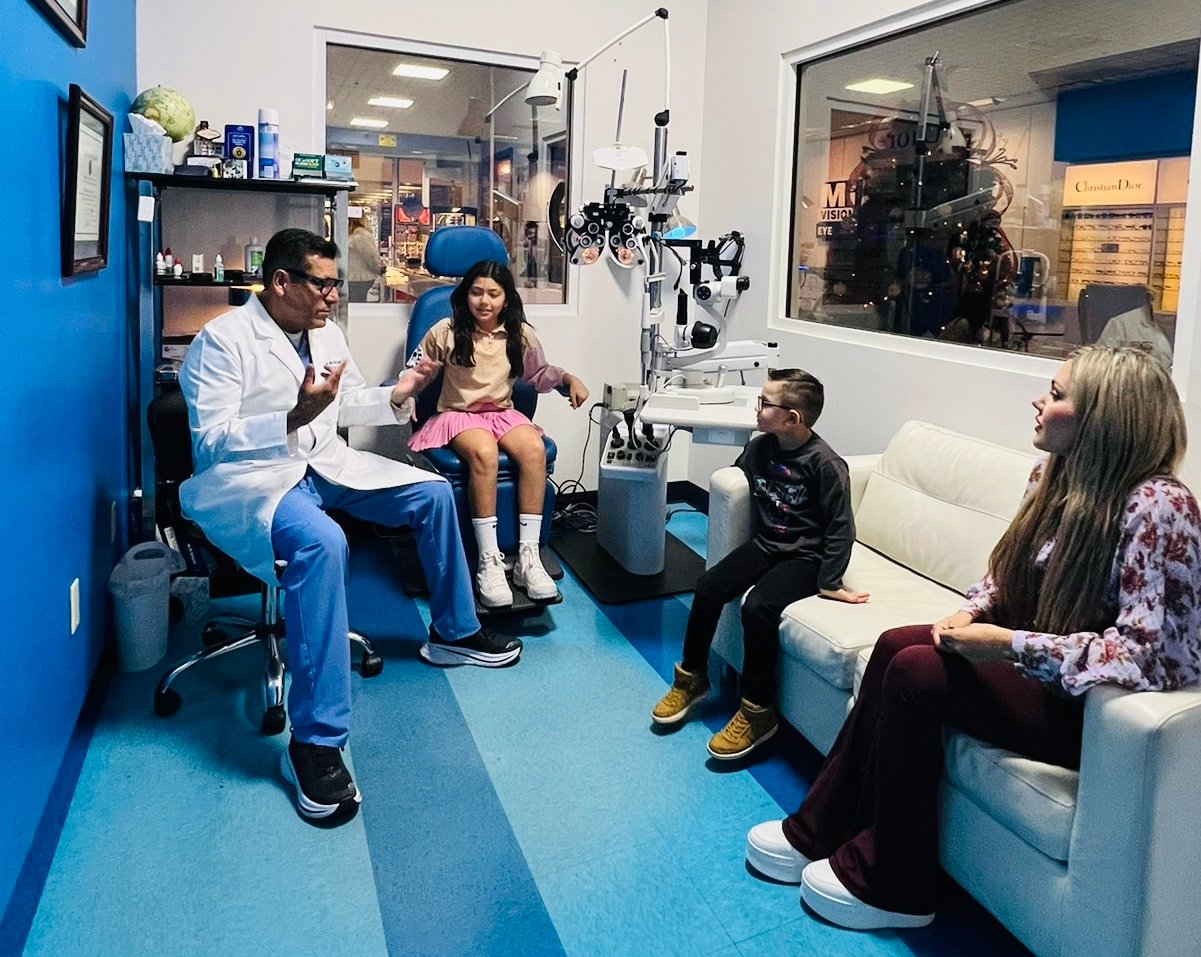
YOUR CHILD HAS OPTIONS TO REDUCE MYOPIA OVER TIME. THE FIRST STEP IS TO BE INFORMED. MAKE AN APPOINTMENT WITH OUR EYE CARE PROFESSIONALS IN SAN ANTONIO, TX FOR A COMPREHENSIVE EYE EXAM & TO EXPLORE YOUR OPTIONS FOR MYOPIA MANAGEMENT. AT MI VISION, WE ARE A FAMILY PRACTICE THAT CARES AND ARE HERE TO HELP YOU FROM START TO FINISH.